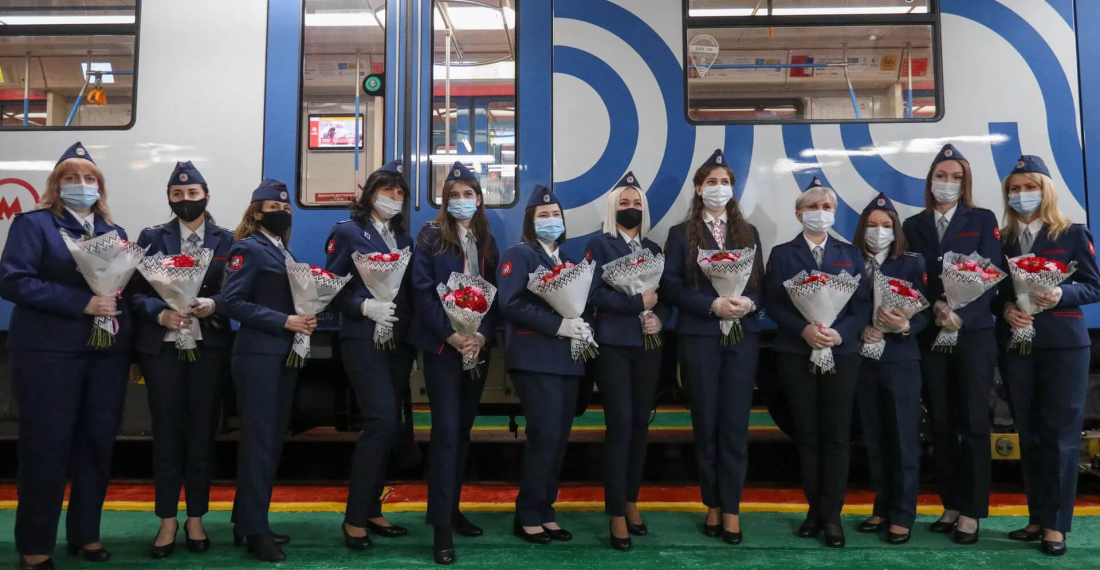Moscow's metro says it has hired its first female train drivers since controversial rules banning women from specific jobs were lifted last year. The Moscow metro company issued a statement on Sunday (3 January) that 50 women will be accepted in 2021, twelve women joined the Russian capital network on 1 January 2021.
Since 1 January 2021, the position has no longer been on a statutory list of forbidden occupations for women. The list of professions was introduced in 1974 and included jobs that would be dangerous to women's health. President Vladimir Putin re-approved this list in the year 2000.
Unique uniforms are being developed for the first female drivers, consisting of summer and winter uniforms and accessories. In developing the form, the wishes of the current employees of the metro and the experience of male train drivers and the opinions of candidates for train drivers have been taken into account. Women will choose what is more convenient for them to ride the train - in a skirt or in trousers: the seasonal form will be elaborated, taking into account these variations.
source: commonspace.eu with agencies
photo: The first women to be allowed to drive Russian metros (EPA)






